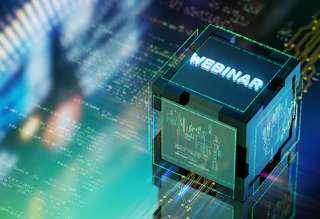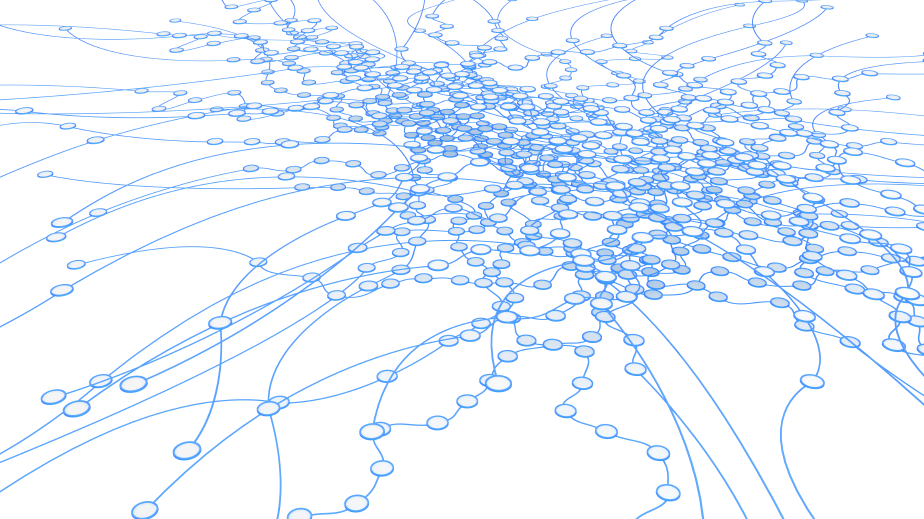- Our Story
- Publications & Resources
- Publications & Resources
- Publications
- IEEE Signal Processing Magazine
- IEEE Journal of Selected Topics in Signal Processing
- IEEE Signal Processing Letters
- IEEE Transactions on Computational Imaging
- IEEE Transactions on Image Processing
- IEEE Transactions on Information Forensics and Security
- IEEE Transactions on Multimedia
- IEEE Transactions on Signal and Information Processing over Networks
- IEEE Transactions on Signal Processing
- IEEE TCI
- IEEE TSIPN
- Data & Challenges
- Submit Manuscript
- Guidelines
- Information for Authors
- Special Issue Deadlines
- Overview Articles
- Top Accessed Articles
- SPS Newsletter
- SigPort
- SPS Resource Center
- Publications FAQ
- Blog
- News
- Dataset Papers
- Conferences & Events
- Community & Involvement
- Professional Development
- For Volunteers
- Information for Authors-OJSP
-
Home
Waveforms for Computing Over the Air: A groundbreaking approach that redefines data aggregation
Conferences Events IEEE Signal Processing Magazine IEEE SPL Article IEEE TIFS Article IEEE TMM Article IEEE TSP Article Jobs in Signal Processing Lectures Machine Learning Seasonal Schools Signal Processing News SPM Article SPS Distinguished Lectures SPS Newsletter Article SPS Webinar SPS Webinars SPS Webinar Series Webinar webinars -
Our Story
What is Signal Processing?

The technology we use, and even rely on, in our everyday lives –computers, radios, video, cell phones – is enabled by signal processing. Learn More » -
Publications & Resources
-
SPS Resources
- Signal Processing Magazine The premier publication of the society.
- SPS Newsletter Monthly updates in Signal Processing
- SPS Resource Center Online library of tutorials, lectures, and presentations.
- SigPort Online repository for reports, papers, and more.
- SPS Feed The latest news, events, and more from the world of Signal Processing.
-
SPS Resources
-
Conferences & Events
-
Community & Involvement
-
Membership
- Join SPS The IEEE Signal Processing Magazine, Conference, Discounts, Awards, Collaborations, and more!
- Chapter Locator Find your local chapter and connect with fellow industry professionals, academics and students
- Women in Signal Processing Networking and engagement opportunities for women across signal processing disciplines
- Students Scholarships, conference discounts, travel grants, SP Cup, VIP Cup, 5-MICC
- Young Professionals Career development opportunities, networking
- Get Involved
-
Technical Committees
- Applied Signal Processing Systems
- Audio and Acoustic Signal Processing
- Bio Imaging and Signal Processing
- Computational Imaging
- Image Video and Multidimensional Signal Processing
- Information Forensics and Security
- Machine Learning for Signal Processing
- Multimedia Signal Processing
- Sensor Array and Multichannel
- Signal Processing for Communication and Networking
- Signal Processing Theory and Methods
- Speech and Language Processing
- Technical Working Groups
- More TC Resources
-
Membership
-
Professional Development
-
Professional Development
- Signal Processing Mentorship Academy (SigMA) Program
- Micro Mentoring Experience Program (MiME)
- Distinguished Lecturer Program
- Distinguished Lecturers
- Distinguished Lecturer Nominations
- Past Lecturers
- Distinguished Industry Speaker Program
- Distinguished Industry Speakers
- Distinguished Industry Speaker Nominations
- Industry Resources
- IEEE Training Materials
- Jobs in Signal Processing: IEEE Job Site
-
Career Resources
- SPS Education Program Educational content in signal processing and related fields.
- Distinguished Lecturer Program Chapters have access to educators and authors in the fields of Signal Processing
- Job Opportunities Signal Processing and Technical Committee specific job opportunities
- Job Submission Form Employers may submit opportunities in the area of Signal Processing.
-
Professional Development
-
For Volunteers
-
For Board & Committee Members
- Board Agenda/Minutes* Agendas, minutes and supporting documentation for Board and Committee Members
- SPS Directory* Directory of volunteers, society and division directory for Board and Committee Members.
- Membership Development Reports* Insight into the Society’s month-over-month and year-over-year growths and declines for Board and Committee Members
-
For Board & Committee Members
Popular Pages
Today's:
- Access Restricted
- Information for Authors
- IEEE Transactions on Image Processing
- Governance Documents
- (ICME 2026) 2026 IEEE International Conference on Multimedia and Expo
- IEEE Transactions on Information Forensics and Security
- (ASRU 2025) 2025 IEEE Automatic Speech Recognition and Understanding Workshop
- IEEE Transactions on Multimedia
- Submit a Manuscript
- Information for Authors-SPL
- About Transactions on Image Processing
- IEEE Transactions on Signal Processing
- Membership Development
- IEEE JSTSP Special Issue on Deep Multimodal Speech Enhancement and Separation
- Editorial Board
All time:
- Information for Authors
- Submit a Manuscript
- IEEE Transactions on Image Processing
- IEEE Transactions on Information Forensics and Security
- IEEE Transactions on Multimedia
- IEEE Transactions on Audio, Speech and Language Processing
- IEEE Signal Processing Letters
- IEEE Transactions on Signal Processing
- Conferences & Events
- IEEE Journal of Selected Topics in Signal Processing
- Information for Authors-SPL
- Conference Call for Papers
- Signal Processing 101
- IEEE Signal Processing Magazine
- Guidelines
Last viewed:
- (ICASSP 2026) 2026 IEEE International Conference on Acoustics, Speech, and Signal Processing
- Conference Call for Papers
- Signal Processing Mentorship Academy (SigMA) Program
- (SLT 2024) 2024 IEEE Spoken Language Technology Workshop
- On the Efficient Design of Stacked Intelligent Metasurfaces for Secure SISO Transmission
- Kazakhstan Chapter
- IEEE Transactions on Information Forensics and Security
- (ICME 2026) 2026 IEEE International Conference on Multimedia and Expo
- Information for Authors
- IEEE Transactions on Multimedia
- An Echo in Time: Tracing the Evolution of Beamforming Algorithms
- Information for Authors-SPL
- IEEE Transactions on Computational Imaging
- Membership
- Call for proposals: 2027 IEEE Conference on Artificial Intelligence (CAI)
Industry Trends: Machine Learning for Commercial Audio Production
You are here
Newsletter Menu
Newsletter Categories
Top Reasons to Join SPS Today!
1. IEEE Signal Processing Magazine
2. Signal Processing Digital Library*
3. Inside Signal Processing Newsletter
4. SPS Resource Center
5. Career advancement & recognition
6. Discounts on conferences and publications
7. Professional networking
8. Communities for students, young professionals, and women
9. Volunteer opportunities
10. Coming soon! PDH/CEU credits
Click here to learn more.
News and Resources for Members of the IEEE Signal Processing Society
Industry Trends: Machine Learning for Commercial Audio Production
In recent years, the commercial audio world has seen an increasing number of application of machine learning in commercial audio products. This should not be surprising, as the audio business was an early adopter data-driven tools aimed at performing standard operations on audio tracks normally performed by audio engineers. Nowadays, companies like CEDAR Audio, iZotope, and Accusonus lead the way in application of modern machine learning (ML) and artificial intelligence (AI) for audio products.
Traditional tasks usually performed by audio engineers are being slowly replaced by tools based on ML/AI using algorithms based on a combination of statistical models and neural networks. In 2014, the DNS One from CEDAR Audio, a multichannel dialog noise suppressor, was the first product in the company lineup to explicitly use machine learning by employing the LEARN algorithm. LEARN is designed to compute estimates of the background noise level and determine suitable noise attenuations at each frequency for optimum suppression. In 2016, CEDAR included the evolution of the LEARN algorithm in its CEDAR Cambridge 10 product, with the new FNR algorithm. According to the company, “FERN is an automated noise reduction system for speech recordings suffering from poor signal to noise ratios, and is capable of performance that would have seemed impossible just a few years ago.”
Another company that uses ML/AI in many of its product is iZotope, a company with products aimed a musicians, producers, and audio engineers. At iZotope, ML is used to automatically identify instruments, to automatically detect song structures and for improved waveform navigation. The company’s latest RX7 audio repair toolkit comprise the De-rustle module that uses a trained deep neural network to remove all varieties of rustle in recordings, the Spectral DeNoiser that leverages ML/AI to minimize disturbances from audio recorded in highly variable background noise situations like a stadiums, thunderstorms, or public places. In addition, the company Neutron 3 plugin features a Mixing Assistant that by using ML creates a balanced starting point for an initial-level mix saving time and energy when making creative mix decisions.
Furthermore, another example is Accusonus, a company with its own patented ML/AI technology which is applied to the ERA range of audio clean up tools. This include algorithms for denoise and de-reverberation, de-essing and audio repair, voice leveling, and de-clipping.
Hopefully future improvements will lead to more and more companies integrating ML/AI in their commercial products. This also will likely result in a shift in the music and audio industry, where bad audio does not have to be re-recorded but can be process to become usable. To identify precisely where the next innovation will be is difficult for a field advancing at such a rapid pace, but maybe the next big innovation could be the use of generative audio models like WaveNet for replacing audio that is missing or too corrupt to keep. Perhaps, in 20 years people may look back and see this as the beginning of a new way to think about audio.
Open Calls
| Nomination/Position | Deadline |
|---|---|
| Call for Mentors: 2025 IEEE SPS SigMA Program - Signal Processing Mentorship Academy | 14 September 2025 |
| Call for Nominations: Technical Committee Vice Chair and Member Positions | 15 September 2025 |
| Call for Papers for ICASSP 2026 Now Open! | 17 September 2025 |
| Call for Nominations: Awards Board, Industry Board and Nominations & Elections Committee | 19 September 2025 |
| Meet the 2025 Candidates: IEEE President-Elect | 1 October 2025 |
| Take Part in the 2025 Low-Resource Audio Codec (LRAC) Challenge | 1 October 2025 |
| Call for proposals: 2027 IEEE Conference on Artificial Intelligence (CAI) | 1 October 2025 |
| Call for Nominations for the SPS Chapter of the Year Award | 15 October 2025 |
| Submit a Proposal for ICASSP 2030 | 31 October 2025 |
| Call for Project Proposals: IEEE SPS SigMA Program - Signal Processing Mentorship Academy | 2 November 2025 |
Publications News
Society News
- SPS Announces 2020 Class of Distinguished Lecturers and Distinguished Industry Speakers
- IEEE SPS 2019 President-Elect, Members-at-Large, and Regional Directors-at-Large Election Results
- Enhancements added to OU Analytics - Geographic Map
- Redesigned OU Monthly Statistics Now Available
- OU Analytics - A Valuable Resource for Volunteers
- OU Analytics - Latest Enhancement
- Inactive Chapters
- Call for Nominations: Fellow Evaluation Committee - Extended to November 22
- Process Change for Member Driven Initiative Proposals
- Job Opportunities in Signal Processing
- Upcoming Distinguished Lectures
Technical Committee News
Member Highlights
Education & Resources
SPS Social Media
- IEEE SPS Facebook Page https://www.facebook.com/ieeeSPS
- IEEE SPS X Page https://x.com/IEEEsps
- IEEE SPS Instagram Page https://www.instagram.com/ieeesps/?hl=en
- IEEE SPS LinkedIn Page https://www.linkedin.com/company/ieeesps/
- IEEE SPS YouTube Channel https://www.youtube.com/ieeeSPS
Home | Sitemap | Contact | Accessibility | Nondiscrimination Policy | IEEE Ethics Reporting | IEEE Privacy Policy | Terms | Feedback
© Copyright 2025 IEEE - All rights reserved. Use of this website signifies your agreement to the IEEE Terms and Conditions.
A public charity, IEEE is the world's largest technical professional organization dedicated to advancing technology for the benefit of humanity.









